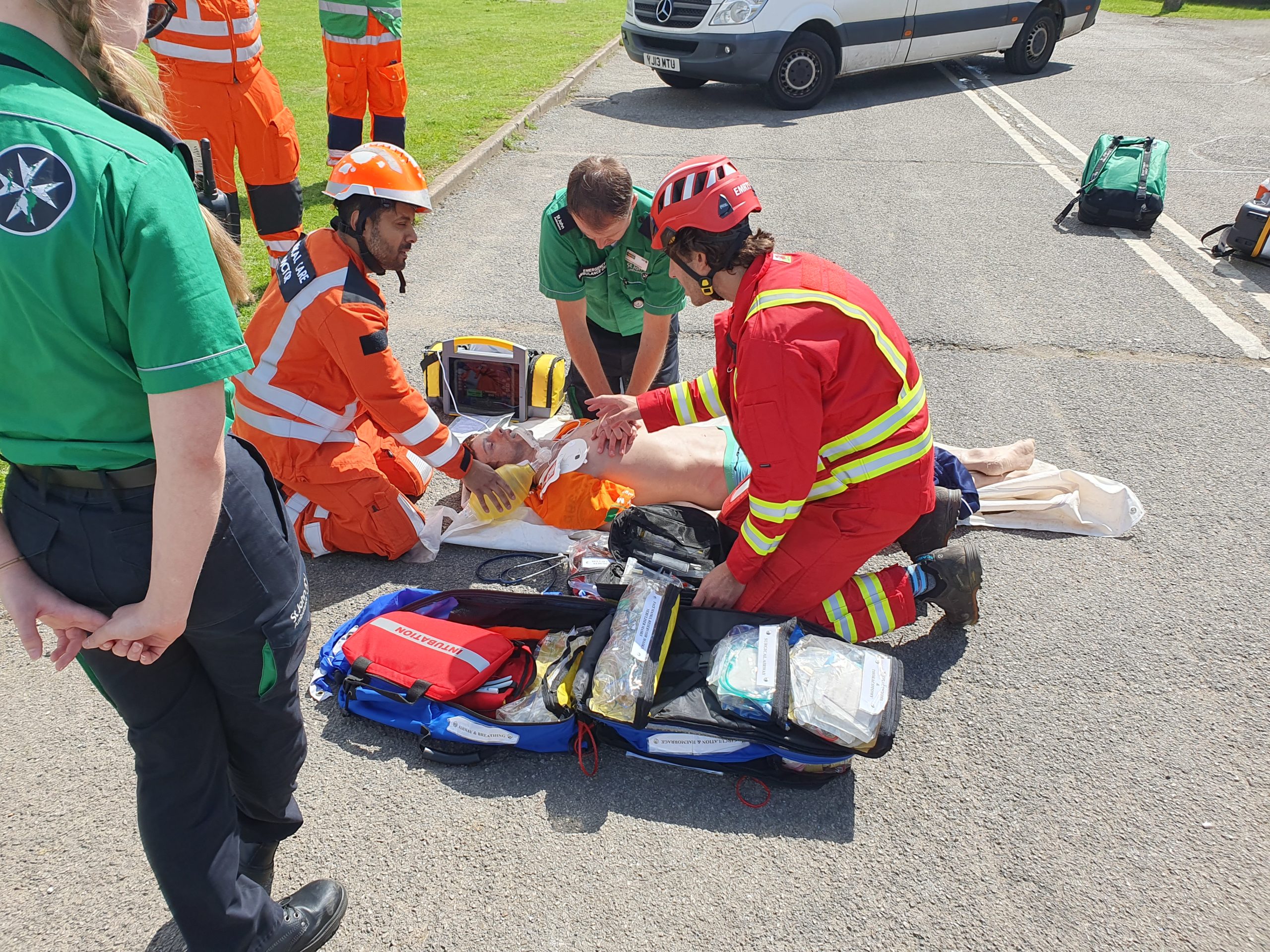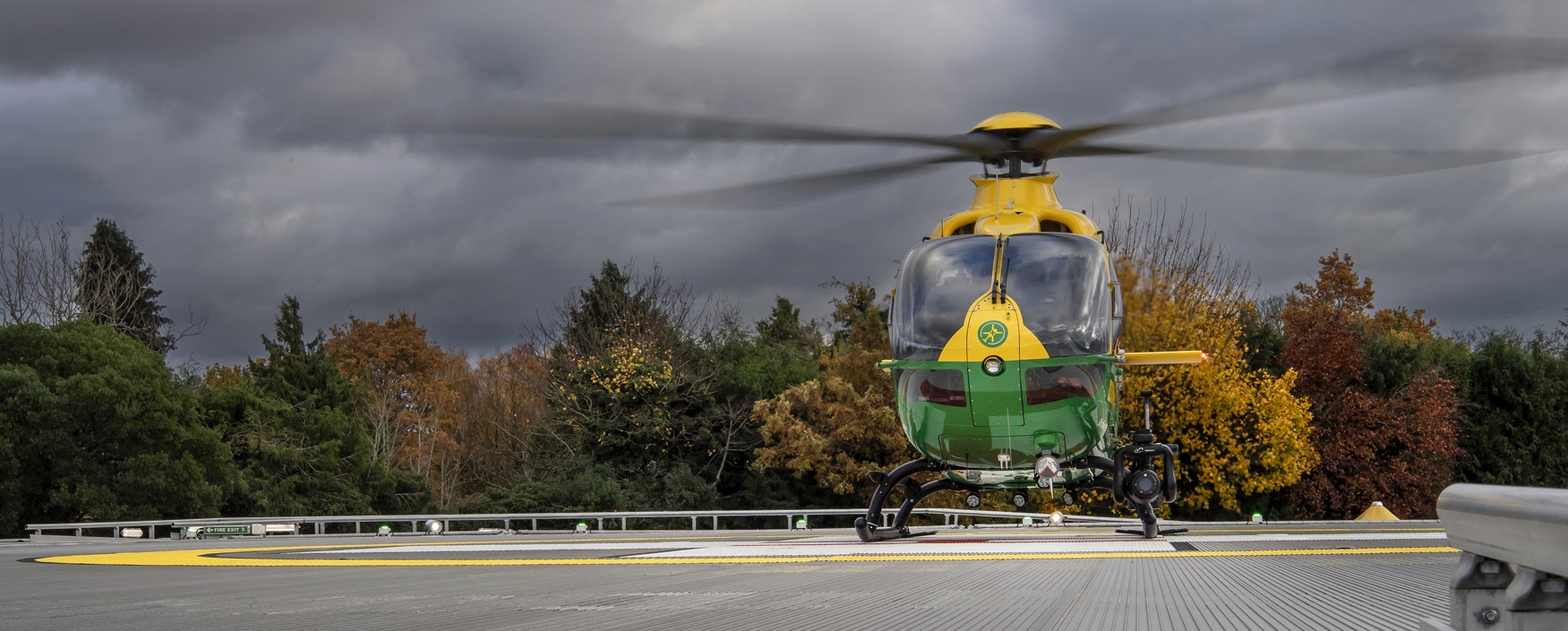August is the busiest month of the year for the helicopter emergency medical service (HEMS) Training team.
We have recently welcomed two new doctors and three new Critical Care Paramedics to the team. The doctors are experienced in their fields of Anaesthetics, Paediatric Intensive Care and Emergency Medicine, but they now need to learn how to function effectively in the pre-hospital environment.
The Critical Care Paramedics have trained and worked as road based solo Critical Care Paramedics in other services. Now we are training them to be ‘HEMS Technical Crew Members’ (supporting the pilot with aviation and navigation) and working in a Doctor-Paramedic HEMS team to deliver interventions like pre-hospital emergency anaesthesia to sick and injured patients.
August kicked off with the Pre-Hospital Emergency Medicine (PHEM) National Induction course in the Lincolnshire Fire and Rescue training ground. This seven-day course involved simulation-based training for Air Ambulance doctors from across the country.

Each day trainees were exposed to scenarios in austere environments, such as upside-down cars, upturned trains, confined spaces, working at height and in collapsed buildings. Five members of our team attended as Faculty, and we were pleased to support our trainees who excelled themselves!
The month culminated with the first module of our Helicopter Crew Course (HCC), conducted at our Airbase. During this course, the new doctors train alongside the new Critical Care Paramedics, along with clinical fellows and paramedics from both the Isle of Wight and Hampshire, helping to make the scenarios genuinely high fidelity.
The Helicopter Crew Course is divided into three modules:
- Module 1 is focused on HEMS Basics (e.g. how to approach a scene) and managing the trauma patient – the module is a mix of classroom based interactive learning, hands on surgical skills and full-blown simulations.
- Module 2 has a focus on critical illness in adults, children and pregnant patients. We also cover how we function effectively in a Major Incident (mass-casualty scenario).
- Module 3 is focused on putting everything we have learned together but in the dark! We are proud to be a service which flies at night – but this comes with unique aviation and clinical challenges which our team needs to train for.
Visit our News Page to keep up with all the latest stories.



 Donate
Donate







